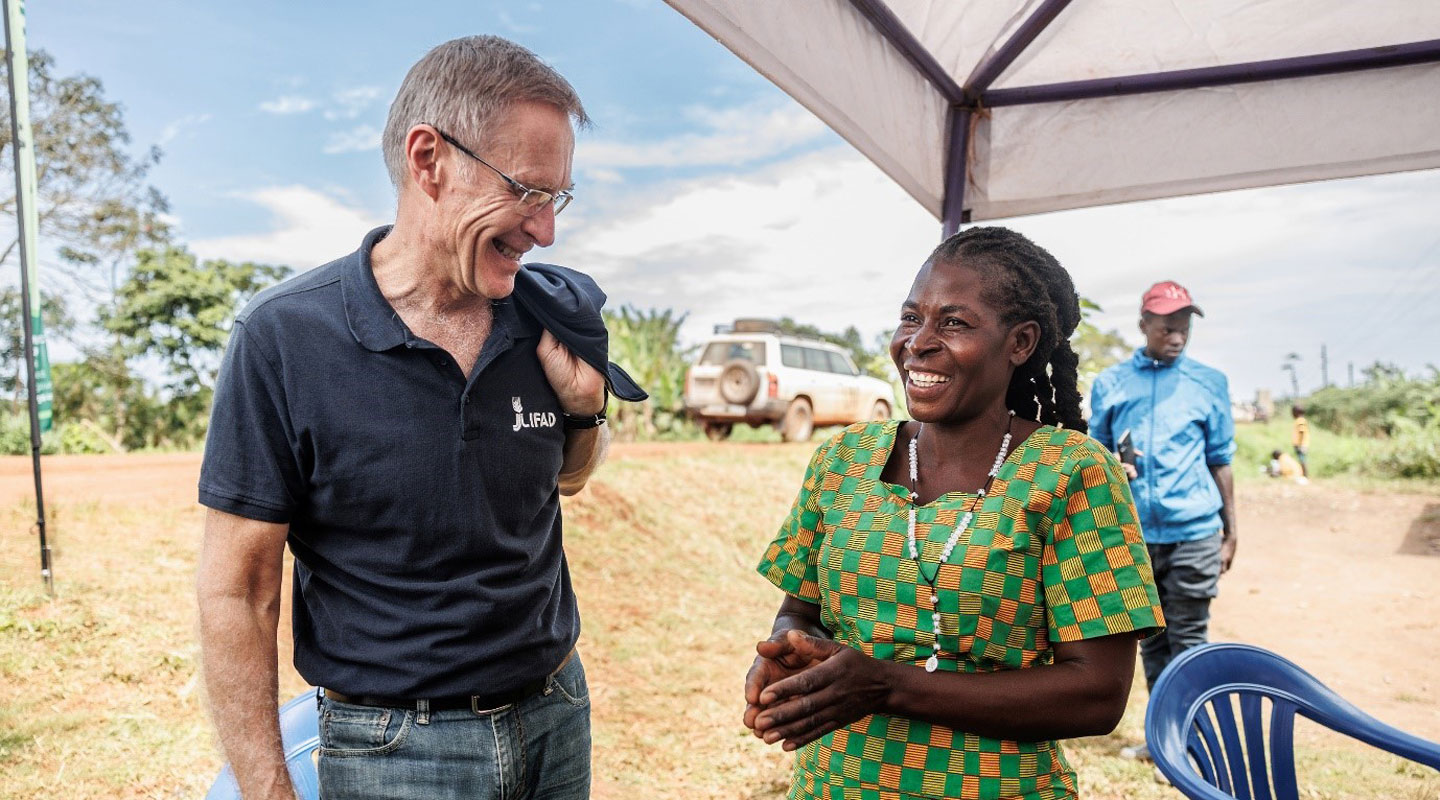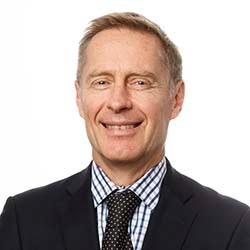Investing in a better future: A new day dawns, and we have reasons for hope
IfadAssetRequestWeb
Asset Publisher
Investing in a better future: A new day dawns, and we have reasons for hope
By Donal Brown

It can often feel like the world is trapped in a permacrisis. With each disaster, from COVID-19 to conflict, it’s the world’s poorest rural people who are worst affected.
When the pandemic shut down markets, rural people could no longer sell the food they produced. When the war in Ukraine increased food and fertilizer prices, many rural families were unable to afford a nourishing diet. When climate and natural disasters strike, it's the world's most vulnerable communities who suffer the most. In the Sahel, the advancing desert is swallowing farmers’ land, while in South-East Asia, the rising sea is flooding fields.
In their travels, IFAD's Regional Directors see first-hand the challenges that rural people face and have shared what needs to be done so they can lift themselves out of poverty – starting with increased investment.
Reehana recounted how climate change is decimating the poorest rural communities in Asia, yet climate finance for adaptation remains wildly inadequate. Across Africa, Sara and Bernard underscored the urgent need to integrate bulging youth populations into vibrant rural economies. In North Africa and Europe, Dina highlighted how climate change and political instability are linked and in Latin America and the Caribbean, the natural cycles of El Niño are being compounded by climate change, further exacerbating social instability.
Despite this, there are also countless reasons giving me confidence that a better future is possible and within reach.
Reasons for hope
 |
| Indigenous youth in Fiji are reviving traditional practices. © IFAD/Laisiasa Dave/Pacific Farmer Organizations |
Investing in rural resilience and adapting to climate change ensures that rural people not only endure times of crisis but emerge stronger.
Connecting farmers to markets and supporting them to produce and sell quality food increases their incomes and makes nutritious food for all more accessible and affordable.
Empowering rural people to conserve and manage the natural resources on which they depend – water, soil, biodiversity – benefits us all.
In the megacity of Nairobi, for example, most of the water running from household taps comes from the Upper Tana River watershed, which is managed by thousands of upstream small-scale farmers with support from an IFAD-GEF partnership.
Rural communities in the Lao People’s Democratic Republic have taken nutrition into their own hands and diversified their diets with the help of the IFAD-funded Agriculture for Nutrition Programme.
In Fiji, the PIRAS initiative helps indigenous youth revive traditional farming practices, like solesolevaki, where farmers share tasks and equipment for the good of the community.
But more must be done if we want to continue empowering rural communities. This is why IFAD also works to bring small-scale farmers to the global table at events like COP, where this year we are making our message loud and clear: leave no one behind.
Resilient rewards
These reasons to hope can only come to fruition with adequate resources. Since its inception, IFAD has provided billions of dollars in grants and loans to rural people so they can lead their own development.
This investment has reaped untold rewards – from helping to eradicate the devastating cassava mealybug in Africa to enshrining Indigenous Peoples’ involvement in decision-making across Latin America. What’s more, these impacts last long after a project ends.
I’m proud of what IFAD has achieved so far – and that we are doing this efficiently by translating every dollar contributed to IFAD into US$6 of investment on the ground.
That’s also why many low-income countries have already pledged to IFAD’s latest replenishment cycle, despite facing severe economic challenges. They’ve seen the difference IFAD makes on the ground. They know that it works.
A new day for rural people
 |
| Domingas bought her first house with the income she made through farming. © IFAD/António Penelas |
In March this year, I met Domingas Vieira Binzole, a young Angolan woman and member of an IFAD-supported fishing collective.
Thanks to the project, she has learned about nutrition and safe water for her two infant daughters, and how to adapt to climate change. She bought a house with the money she earned from farming and selling fish, so her family now have a safe roof over their heads as well as giving Domingas access to finance to grow her business.
Once empowered with knowledge, resources and infrastructure, countless rural people, like Domingas, are changing their world. And with it, they’re showing us that a new day is possible for all.
Publication date: 11 December 2023